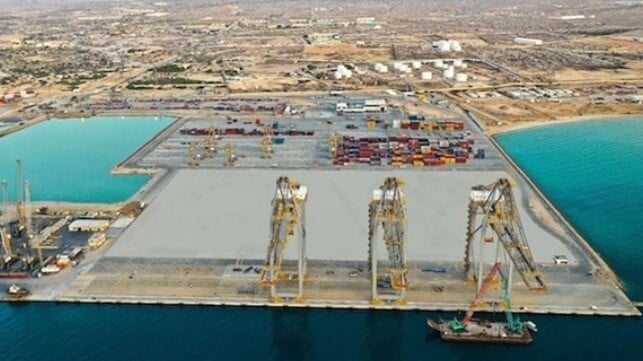As Tensions Rise in Horn of Africa, Somalia Signs Defense Pact with Turkey

As the world watches the Houthi maritime insurgency in the Red Sea, a new geopolitical alignment that could determine the region’s stability is taking shape to the south. Last week, Somalia’s government signed a 10-year defense and economic cooperation pact with Turkey, amidst growing tensions between Mogadishu and Ethiopia on the use of the Port of Berbera.
A month ago, Ethiopia signed an initial agreement with Somalia’s breakaway region of Somaliland to gain rights for access to the Red Sea Port of Berbera. In return, Somaliland would get a stake in state-owned Ethiopian Airlines and recognition of its sovereignty.
However, this deal ignited a stern response from Mogadishu, which accused Ethiopia of interfering with its internal affairs. Although Somaliland has enjoyed autonomy since 1991, Somalia still considers it to be part of its own territory.
In an interview last week, Somali President Hassan Sheikh Mohamud said that his country would defend itself if Ethiopia goes ahead with its deal in Somaliland.
“If Ethiopia insists, Somalia will resist and will refuse. If they come into the country, Somalia will do everything that it can to defend itself,” Mohamud told Reuters, without giving further details.
According to Mohamud, the defense agreement with Turkey is meant for capacity-building purposes for the Somali army.
“We asked for their support, not to fight Ethiopia or invade another country. It is to support us in defending our country. That is the origin of the agreement we have entered with Turkey,” added Mohamud.
The pact was first approved by the Somali Cabinet and later endorsed by the two houses of Somalia’s Parliament in a majority vote. The deal includes a maritime security component as well.
“Turkey will build, train and equip the Somali navy as part of the government’s plan to fight terrorism, piracy, illegal fishing, toxic waste dumping and any external violations or threats to Somalia’s sea coast,” said Somali Prime Minister Hamza Abdi Barre.
Turkey’s Defense Ministry confirmed the cooperation deal with Mogadishu, saying that for almost a decade, Turkey has been providing support to Somalia to reorganize its army and bolster fight against terrorism.
“Upon Somalia’s request, we will provide support in the field of maritime security, as we did in the field of fight against terrorism. Hence, we will help Somalia develop its capacity and capabilities to combat illegal and irregular activities in its territorial waters,” a Turkish Defense Ministry official told reporters.
Somalia has the longest coastline in Africa, covering nearly 1,900 miles Unfortunately, years of civil war in the country have left it with limited capacity to patrol and administer its extensive coastline.

that matters most
Get the latest maritime news delivered to your inbox daily.
In 2011, Turkey re-established its diplomatic relations with Somalia, and since then the two countries have cooperated on defense and economic matters. This saw Turkey set up its biggest overseas military base in Mogadishu in 2017. The base has a capacity to train 1500 soldiers at a time and its initial goal was to train 10,000 Somali troops.
These initiatives have been interpreted in the light of Turkey’s foreign policy agenda, which includes ambitions of projecting Turkish power in Africa, especially in the Red Sea region. This is consistent with a wider trend by other Middle Eastern powers, which have operational presence in the Red Sea. Israel has a naval base in its Red Sea town of Eilat. Egypt, which has one of the most powerful militaries in the Arab world, maintains four Red Sea bases. The UAE had a naval base in Eritrea until 2021 and still has an operational base in Yemen’s Socotra Archipelago. Saudi Arabia’s King Faisal Naval Base is also found in the country’s Red Sea City of Jeddah.
